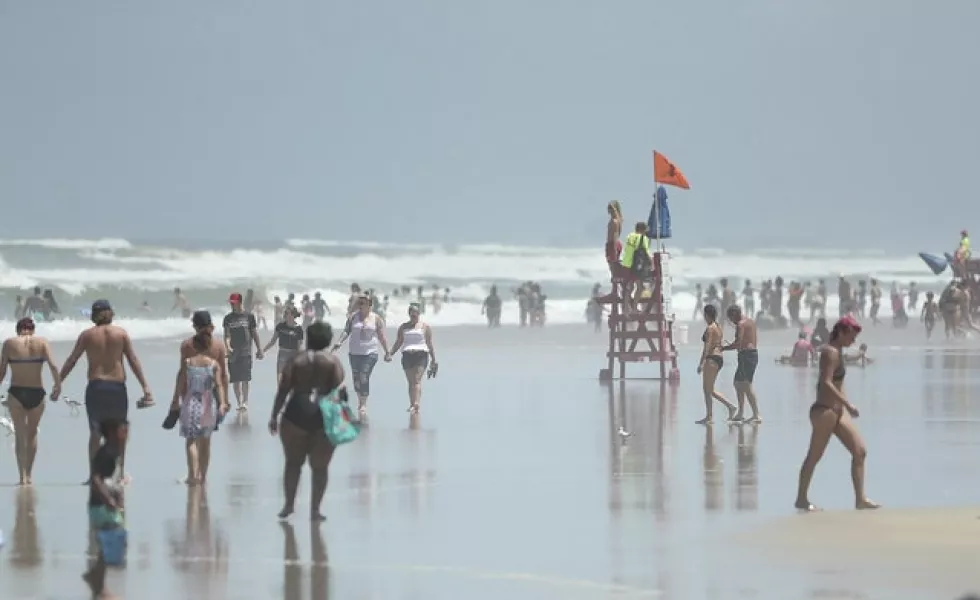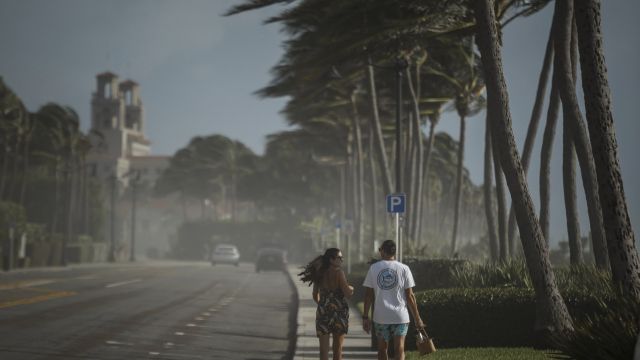Isaias weakened from a hurricane to a tropical storm on Saturday afternoon, but was expected to regain hurricane strength overnight as it barrels toward Florida.
“We’ll start seeing impacts tonight,” Florida Governor Ron DeSantis warned at a news conference.
“Don’t be fooled by the downgrade.”

Isaias is piling another burden on communities already hard-hit by previous storms and the pandemic.
Florida authorities closed beaches, parks and virus testing sites, lashing signs to palm trees so they would not blow away.
The governor warned residents to expect power outages and asked to have a week’s supply of water and food on hand.
Officials wrestled with how to prepare shelters for people to seek refuge, if need be, while safely social distancing because of the virus.
Authorities in North Carolina ordered the evacuation of Ocracoke Island, which was slammed last year by Hurricane Dorian.
Meanwhile, officials in the Bahamas opened shelters for people in Abaco island to help those who have been living in temporary structures since Dorian devastated the area, killing at least 70 people.
Isaias’s maximum sustained winds dipped steadily on Saturday and were near 70 mph (110 kph) around 11pm.
By Saturday night, the storm was about 80 miles east-southeast of Fort Lauderdale, Florida.

It was expected to be near Florida’s southeast coast early on Sunday, then tack near or along the state’s Atlantic coast during the day.
Isaias is expected to remain a hurricane through Monday, then slowly weaken on its climb up the Atlantic seaboard.
It is expected to move offshore of the coast of Georgia en route toward the mid-Atlantic states.
Heavy rain, flooding and high winds could batter much of the East Coast during the week.
On Thursday, before it became a hurricane, Isaias uprooted trees, destroyed crops and homes and caused widespread flooding and small landslides in the Dominican Republic and Puerto Rico.
One man died in the Dominican Republic while in Puerto Rico, the National Guard rescued at least 35 people from floodwaters that swept away one woman, whose body was recovered on Saturday.
Concerns about the coronavirus and the vulnerability of people who are still recovering from Dorian were adding to storm worries.
Coronavirus cases have surged in Florida in recent weeks and the added menace of a storm ratcheted up the anxiety.
State-run virus testing sites are closing in areas where the storm might hit because the sites are outdoor tents, which could topple in high winds.







